Coverage of Conflict-Related Sexual Violence (CRSV) is a new topic for Ukrainian media, but in fact, it is as old as the world and the history of wars. After all, sexual violence is a phenomenon that systematically accompanied all wars and was aimed at the subjugation and demoralization of people.
Meanwhile, over the centuries, this issue was hushed up and stigmatized; CRSV survivors were often ostracized, so few of them dared to talk about it. And only recently, this topic entered the category not only of media topics, but also of those that are currently in the area of attention of human rights defenders. A number of institutions have directed their activities to support CRSV survivors. Experts recommend that journalists who take up this topic have appropriate training so as not to harm the survivors and submit materials as correctly as possible, with the aim of punishing the guilty and making CRSV inadmissible. This topic was discussed at the training called Covering of CRSV: What Journalists Need to Know? which was organized by the National Union of Journalists of Ukraine (NUJU) together with the Dr. Denis Mukwege Foundation.
“When covering this topic, journalists face a number of challenges when communicating with CRSV survivors. Therefore, we need to know how to respond to obstacles and raise the level of awareness of journalists on this topic,” said Lina Kushch, the First Secretary of the NUJU.
She drew attention to the fact that this is not the first training dedicated to the topic. Such measures have already been held in the regions. According to Lina Kushch, it is necessary to unite the efforts of the state, non-governmental organizations, and the media so that this difficult topic becomes visible and the fight against CRSV is effective.
“I appreciate the attention and respect of journalists to the topic of CRSV. I understand how difficult it is to write about it. I’ve been through too much myself. I’m currently writing a book, but it’s hard for me to talk about it, either. We must be ready for the number of survivors of sexual violence who are currently in both the free territory of Ukraine and the temporarily occupied territory. And it depends on journalists how society will perceive CRSV survivors as these people need support. I am open to communication, and the call not to remain silent is also a call to journalists. It is worth knowing that men also have a similar traumatic experience, but they keep silent about this problem more than women,” emphasized human rights defender / citizen journalist / communications director of the SEMA Ukraine NGO, Liudmyla Huseinova, who, after her release from captivity began to care for women who survived CRSV, and to highlight such stories in order to stop this terrible weapon of war and punish the guilty.
The Executive Director of the Dr. Denis Mukwege Foundation, Katrien Coppens, who joined the event online, emphasized that it is very important that the media is not afraid to raise this topic, thus becoming a catalyst for survivors of violence to get the help they need. That is why the Dr. Mukwege Foundation is supporting the NUJU to de-stigmatize CRSV survivors and support them in overcoming their challenges.
“From 2022, work began on the implementation of holistic care for CRSV survivors; the NUJU joined the case. It is important to break the wall of silence, and it is also critically important to raise public awareness of this issue. It is important to teach journalists how to talk to the survivors of excessive dramatization,” stressed Katrien Coppens.
According to Fedir Dunebabin, a representative of the Mukwege Foundation in Ukraine, 270 cases of CRSV survivors have been recorded by the Prosecutor General’s Office. But this is perhaps only 10% of those who survived this horror because the exact number is unknown: the majority of those who were sexually assaulted during the conflict do not even seek help, and one of the reasons is that the topic has been too “invisible” for a long time.
“The mission of the Mukwege Foundation is holistic assistance to the survivors, that is, comprehensive, comprehensive support that takes into account all factors,” Fedir Dunebabin said.
The Government Commissioner for Gender Policy, Kateryna Levchenko, brought to the meeting booklets – methodical recommendations for dealing with survivors of sexual violence during stabilization measures and investigative actions, which also contains an algorithm for actions in contact with survivors of CRSV, and drew attention to the fact that you need to learn communication with these people.
As NV journalist and psychologist Yuliya Zabielina, who has spoken with 10-15 people who suffered from sexual violence and war trauma, noted from her own experience, it will not be possible to make a sensation on the subject of such trauma.
“CRSV survivors should be approached not as a tool for obtaining history, but as a person – with all respect and tolerance. It is not easy. It is especially difficult with men. When in Kherson, we talked to a raped man who agreed to share his story, he asked to turn away – he was even bothered by a gaze in his direction during the conversation. And perhaps, it is not possible to conduct an interview at one time,” noted Yuliya Zabielina.
Liudmyla Huseinova spoke in detail about what needs to be taken into account during an interview with CRSV survivors, also offering journalists practical exercises and conducting “work on mistakes.” Journalists have seen how difficult this work is.
In particular, Liudmyla Huseinova pointed out that CRSV has too many types. How tolerant and humane is it to interview a person who has gone through all this, and how to convey this sensitive truth to people through the story of a specific survivor without hype and sensationalism?
Liudmyla Huseinova gave a number of tips, drawing attention to the fact that, despite everything, each person, each case should be approached individually, so that the trauma that has not yet been fully experienced does not return…
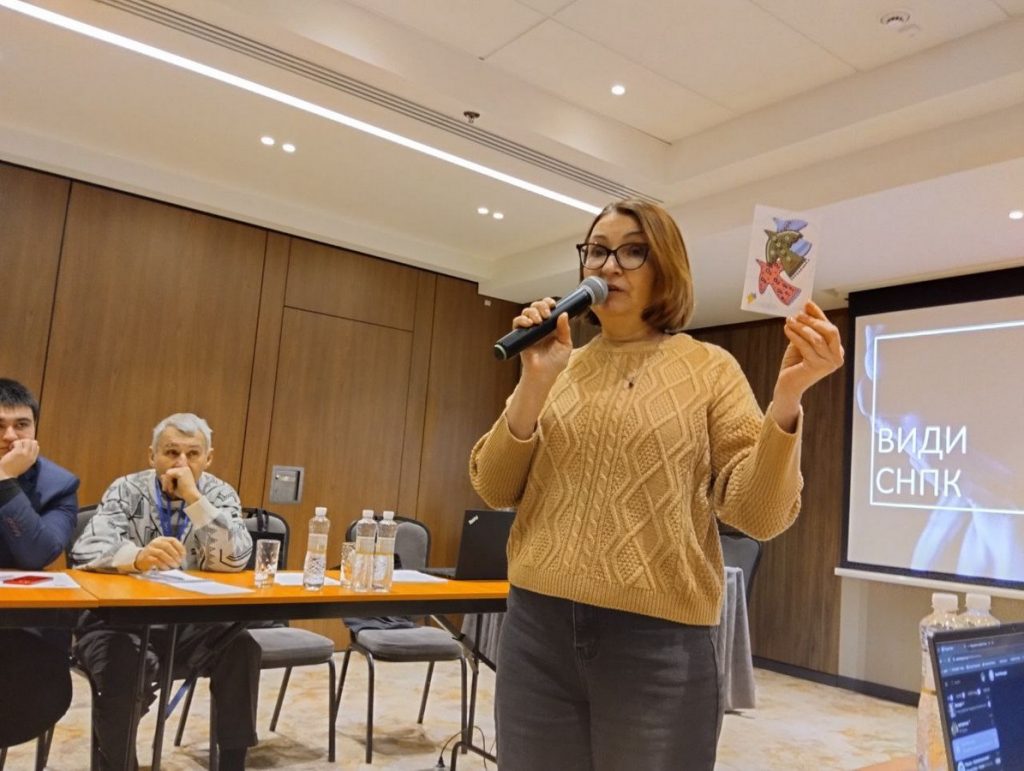
Liudmyla Huseinova’s tips:
- do not contact people who have experienced sexual violence without prior warning;
- before starting the interview, explain in detail to the person who you are, which media you represent, where the material will be published, etc.;
- pay attention to the fact that the conversation will be confidential and the person’s data will not be disclosed – if the interviewer does not want to, do not mention their name and other information about them, do not show their face, etc.;
- note that the most important thing is the safety of the person; they can come to the meeting alone or with people they trust, for example, with a psychologist or children;
- carefully consider the location for the interview, taking into account the specifics of the CRSV survivor’s experience;
- carefully, with respect for the interviewer’s private life, think through the questions so as not to retraumatize the person;
- note that a person can interrupt the conversation at any moment if they feel uncomfortable.
For Ukrainian journalists, this topic is still new, but in the Balkans, it has been raised for a number of years. Ukrainian journalist Liudmyla Makei, who currently works in the Republic of Kosovo, said that the Balkans, where wars often took place, became the main catalyst for violence. The experience of Kosovo and neighboring countries is very important for us. A special center has been opened here for women who have suffered from violence. Also, on April 14, 2023, the National Day of Survivors of Sexual Violence was established for the first time.
“The task of journalists is to convey the truth to society, whatever it may be. It is necessary to help people who have survived violence,” the media woman noted.
Liudmyla Makei’s tips for journalists:
- during the interview, be an active listener; let the person speak to make this topic visible;
- attention to small things: for example, to find out what drinks it is better to offer a person, preferably not to wear jewelry that can become a trigger, etc.;
- do not ask insensitive questions;
- do not say: “I understand you;”
- do not promise anything;
- protect a person’s data as much as possible.
Nataliya Potseluyeva, a trauma-focused therapist and clinical psychologist of the Andriyovykh Foundation, also spoke before the participants of the training. She noted that, first of all, it is worth remembering that people who have survived violence do not trust anyone. Often, they experience the traumatic event as if it were constantly repeating itself in the present tense.
Nataliya Potseluyeva’s tips:
- give the person a sense of control;
- provide water;
- introduce yourself, clarify your further actions, and allow to ask any questions;
- start a conversation with phrases: “How are you?” “How are your children?” “What’s bothering you?” “Where do you live now?” etc.
- avoid triggers: black or khaki (military), clothes reminiscent of military uniforms, bright make-up, and perfumes (especially men’s).
Covering CRSV issues is very difficult. After all, sometimes it can happen that a journalist agrees, takes an interview, writes an article, but the person of the story refuses to publish at the last moment. It would help if you were prepared for this because it is also the right of a person who has experienced violence. And all the more important and valuable are such journalistic materials, such work of media workers because it is aimed at a noble goal – the eradication of such a shameful phenomenon as sexual violence related to the conflict.
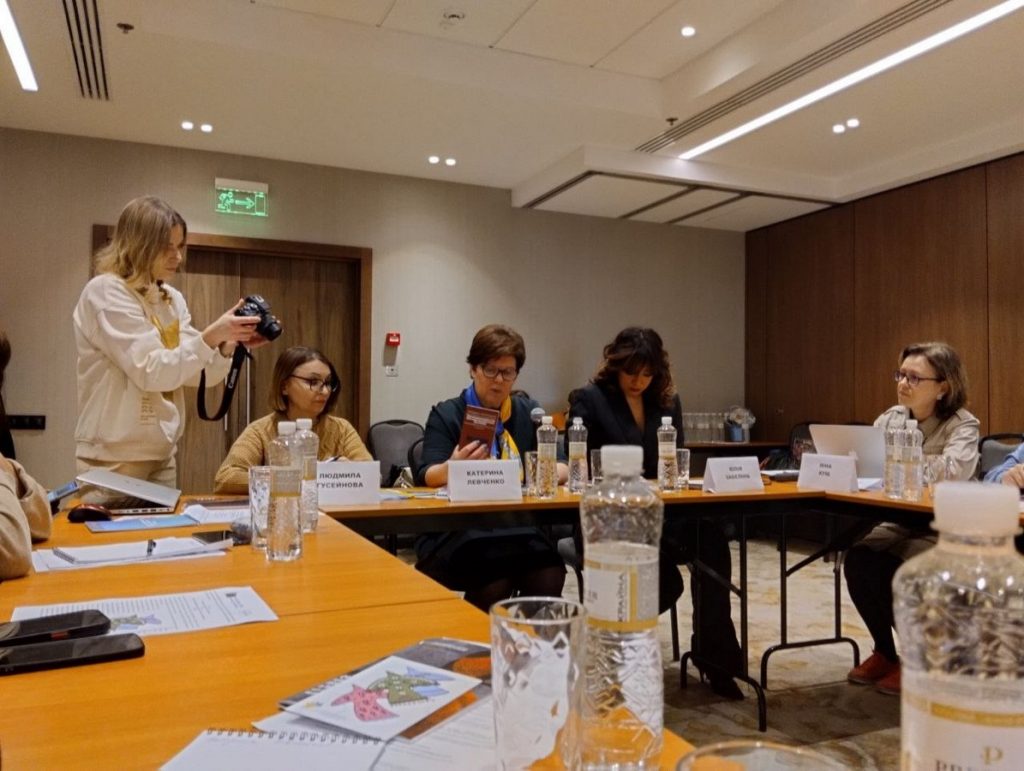
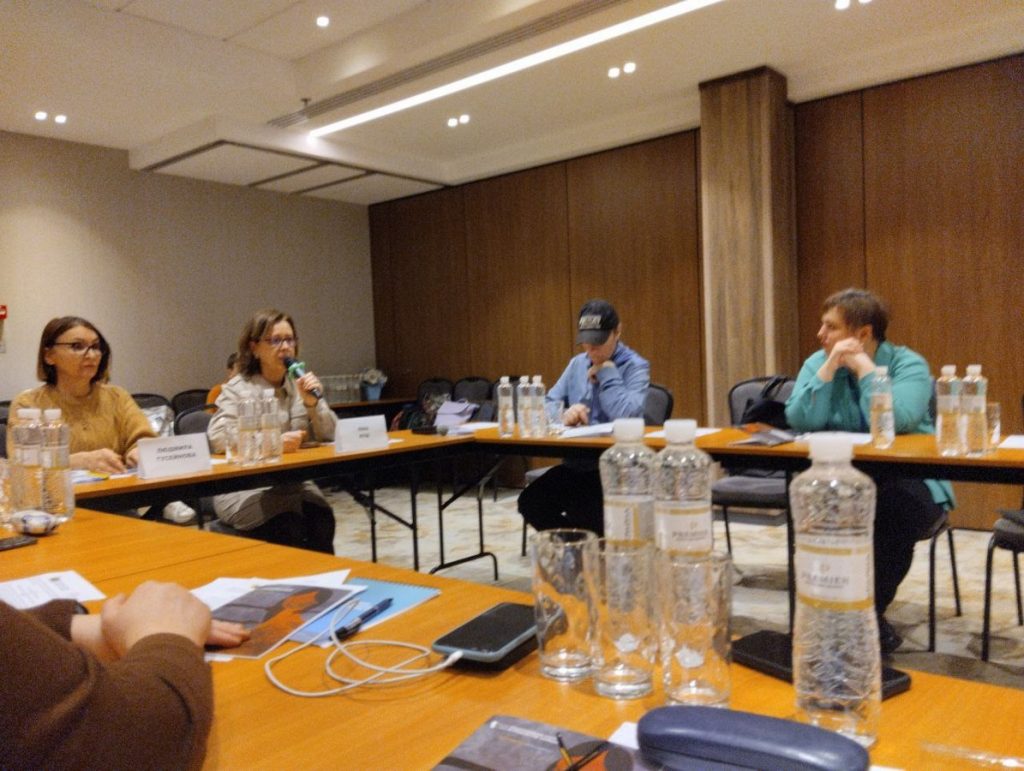
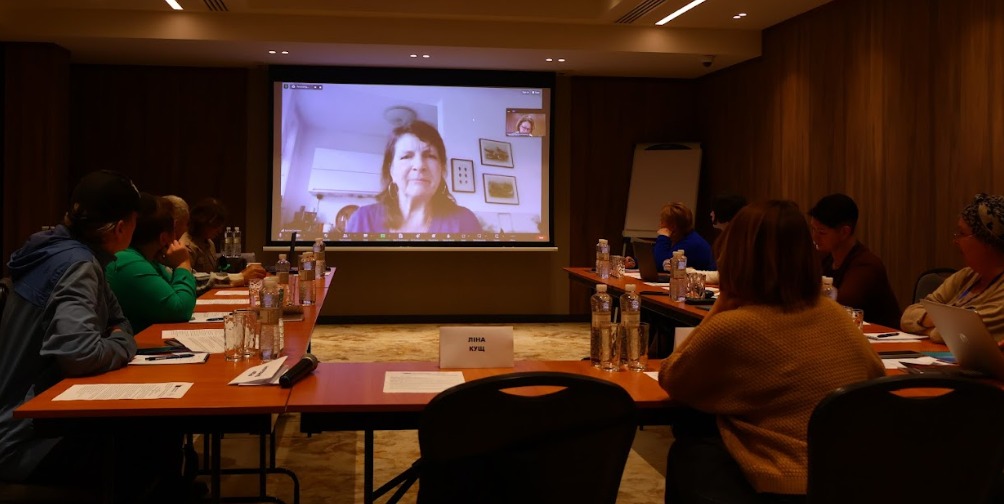
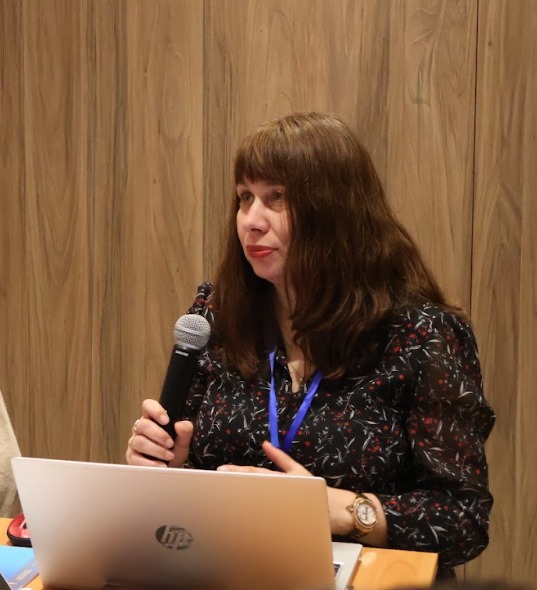
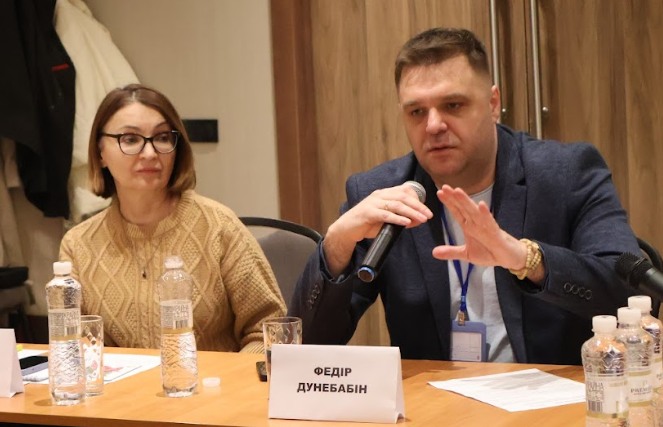
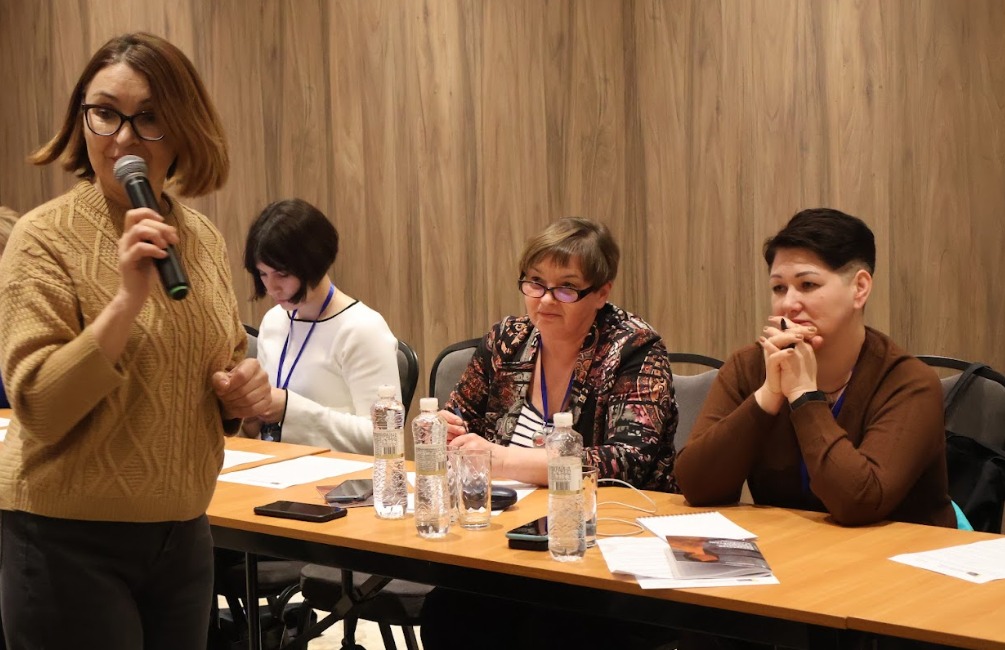
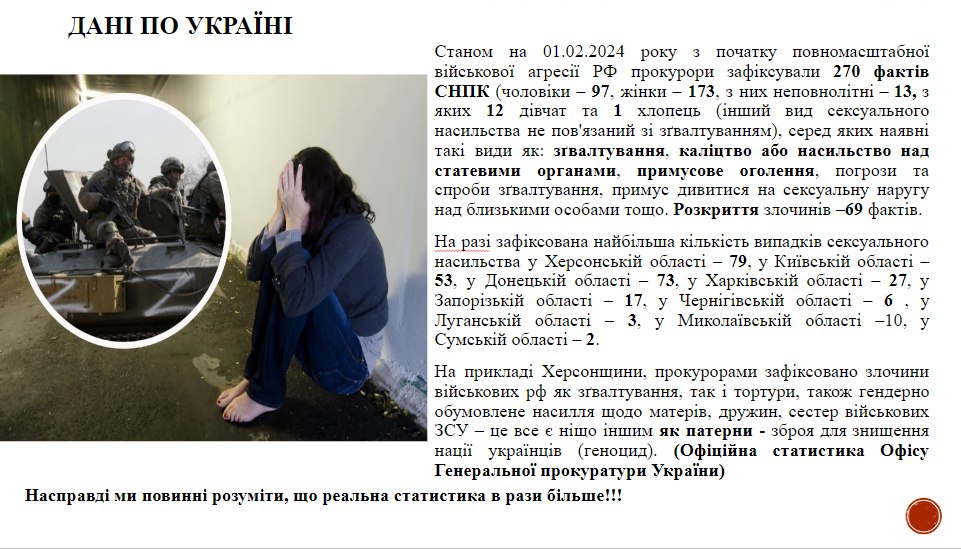
NUJU Information Service

 THE NATIONAL UNION OF
JOURNALISTS OF UKRAINE
THE NATIONAL UNION OF
JOURNALISTS OF UKRAINE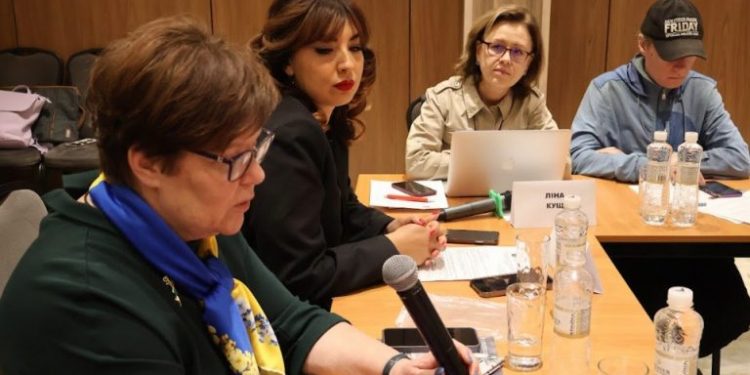

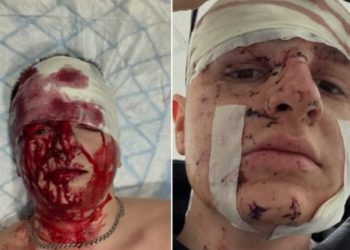
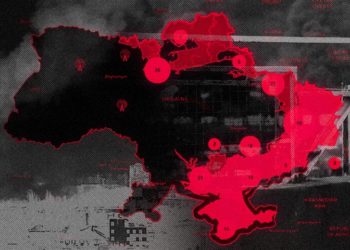













Discussion about this post